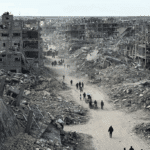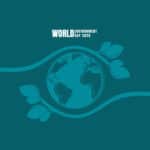Bujumbura, Burundi, 20 June 2014 – Do refugees contribute to the life and development of the country that receives them? For Avocats Sans Frontières (ASF), the answer is a clear yes. To mark World Refugee Day, ASF is launching an awareness-raising campaign in this regard in Burundi. This small African country, which is home to 50.000 refugees, is overflowing with fantastic stories of solidarity and hopes for the future.
“Here I am safe and free”, says Numbe Chock Bin, a Congolese refugee in Burundi. “I opened a bakery in the Kamuvu refugee camp and the bread that we make here benefits other refugees and the Burundians who live nearby.”
Numbe Chock Bin is one of three Congolese refugees who are sharing their journeys since fleeing from their home country, marked by years of violence and fear, through to their integration into Burundian society.
People who flee their country to seek refuge in another country are mostly vulnerable groups. More often than not they are unaware of their rights, do not understand the procedures to claim refugee status and are sometimes victims of abuse or sexual violence.
“Refugees don’t just have rights and obligations. They can also contribute to the development of their host-country,” explains Axelle Nzitonda, ASF project coordinator in Burundi. “To mark World Refugee Day we therefore decided to share life stories that show refugees participating in Burundi life and in the development of the country. We are also celebrating Burundi’s solidarity in welcoming the refugees.” In fact, this is the only country in the Great Lakes region to have set up a body responsible for tackling issues related to asylum.
These stories are being disseminated in the form of short videos on Burundian television as part of the PIDDAR* project. Launched in 2012, this project aims to reinforce protection and measures to provide legal advice and assistance for refugees and asylum seekers, and to promote the asylum and international protection of refugees in Burundi.
“There are Burundians who come to my bakery and I teach them how to make bread,” is Numbe Chock Bin pleased to say. “It benefits their future.”
Thanks to the PIDDAR project, more than 2.800 people have already been made aware of their rights and 2.600 have received free legal advice.
This ASF project, financed by the European Union, supports the United Nations High Commissioner for Refugees (UNHCR) and the National Office for the Protection of Refugees and Stateless Persons, part of the Interior Ministry responsible for determining the status of refugees.
According to the UNHCR, 51,2 people – refugees, internally displaced persons and stateless persons – are currently in need of international protection due to violence and instability in their home country.
Find out how a baker, a teacher and a student, all of them refugees, contribute to the development of the society (videos in French)
*PIDDAR = acronym for “Protection Internationale et Droits des Demandeurs d’Asile et des Réfugiés” (International Protection and Rights of Asylum Seekers and Refugees)



